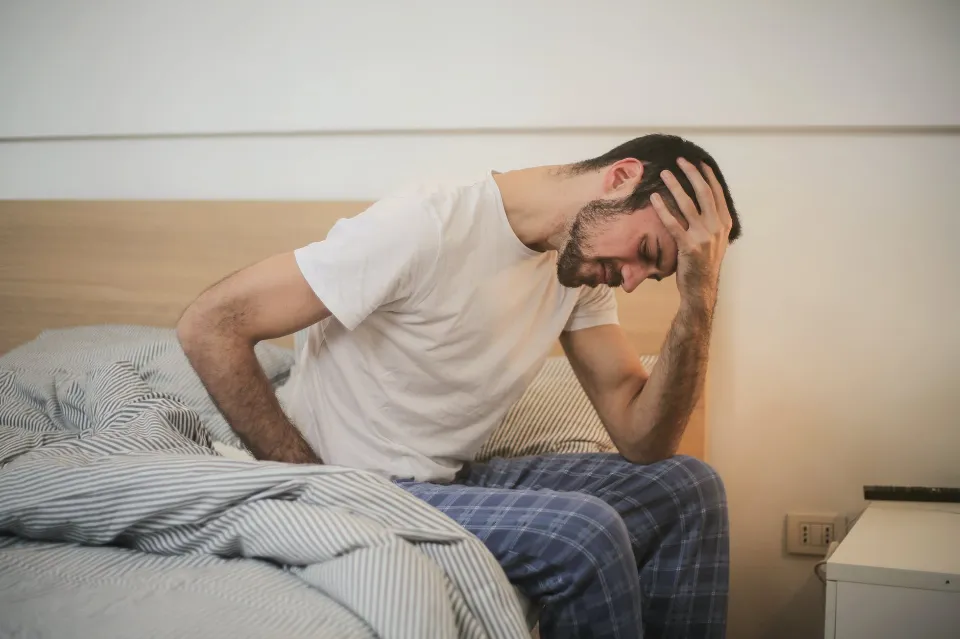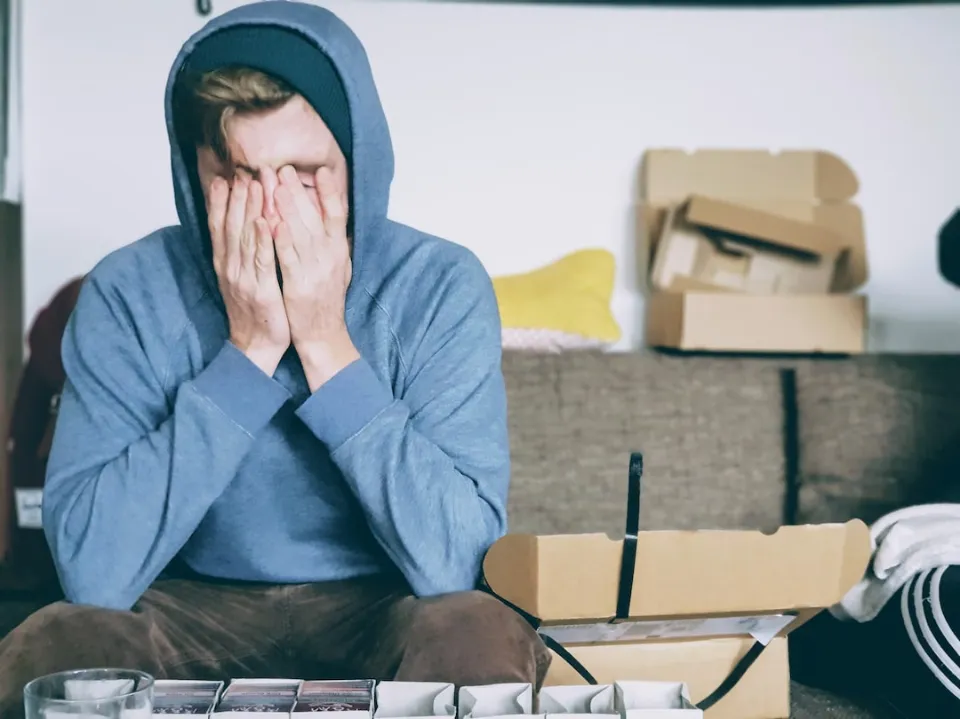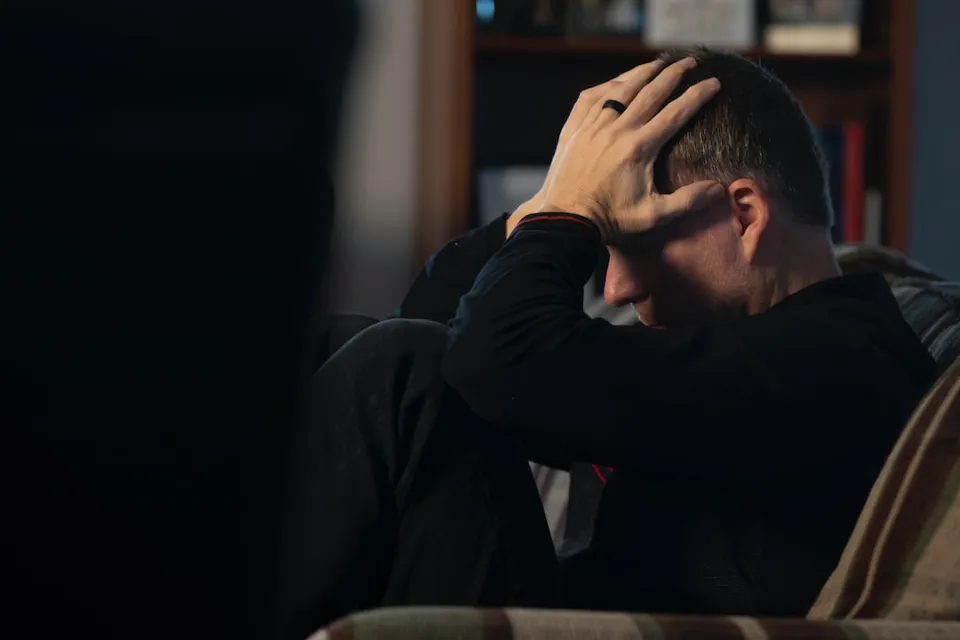
Why Am I So Tired With Diverticulitis – How to Manage Your Condition
Diverticulitis, a condition characterized by inflamed pouches in the colon, can result in a number of symptoms, including fatigue and low energy. If you have diverticulitis and are constantly exhausted, it’s important to determine the possible causes of this symptom and to look into practical management options.
In this piece, we’ll talk about potential causes of fatigue associated with diverticulitis, such as inflammation, dietary factors, or associated complications. You can strive for increased vitality and general well-being by being aware of these factors and making the necessary lifestyle changes.
What is Diverticulitis?

Diverticulitis is a condition in which the lining of the digestive system develops tiny pouches, known as diverticula, most frequently in the large intestine (colon). Inflamed or infected pouches like these can result in uncomfortable symptoms like bloating, abdominal pain, and changes in bowel habits.
Diverticulitis is thought to have a connection to constipation and a low-fiber diet, both of which can put pressure on the colon and cause diverticula to form, though the exact cause of diverticulitis is unknown. Diverticulitis may, in severe cases, result in complications like abscesses, perforations, and fistulas.
Why Am I So Tired With Diverticulitis?
Here are some of the reasons why you may feel tired with diverticulitis:
1. You’re Dehydrated

It is simple to forget to get enough water each day. But since you’re dehydrated, drinking insufficient amounts of water can make you feel exhausted and weak. Particularly if you have diverticulitis, this is true.
You may have trouble staying hydrated if the diverticula’s pouches become infected or inflamed. You should stay hydrated throughout the day by drinking water and other fluids, but if you have diverticulitis, you should also ask your doctor how much fluid you should consume daily.
2. You’re Anemic
You may experience fatigue if your body lacks sufficient red blood cells as a result of iron deficiency anemia. The same is true if you have diverticulitis and are anemic.
This is because hemoglobin, a protein found in red blood cells that transports oxygen throughout your body, needs iron to function properly in your body. Your body may not be able to properly absorb iron from your diet if you have poor digestion or an intestinal disorder like colitis, diverticulitis, or Crohn’s disease.
3. You’re Seriously Ill
When you have a serious illness like diverticulitis, feeling exhausted is not unusual. You will find it challenging to get a good night’s sleep when you are seriously ill. You might experience daytime fatigue and drowsiness as a result.
4. You’re Depressed
When someone is gravely ill or has a long-term medical condition, such as diverticulitis, they may experience depression. Even if your energy levels seem normal on days when you don’t feel as depressed, it might be difficult for you to muster the energy to do anything at all if you are feeling low.
If you have diverticulitis, you might also want to inquire with your doctor about whether you can take antidepressants. It might be easier for you to feel happier and enjoy life once more if they help you increase your energy levels.
5. You’re Overweight Or Obese

It should come as no surprise that being overweight or obese can also make you feel exhausted, especially if you have diverticulitis.
Additionally, having a weight problem or being obese can raise your risk of getting diverticulitis in the first place. Diverticular disease increases your risk for other illnesses like heart attacks and strokes, so it’s crucial that you work to manage your weight.
To create a weight-loss strategy that works for you, you will need to consult your doctor. Ask your doctor if they can recommend a dietitian or nutritionist who can assist you in losing weight in a healthy way if you are having trouble.
6. You Have An Allergic Reaction
Diverticulitis sufferers occasionally develop food allergies. Find out if you can avoid food if you think you might be allergic to it by speaking with your doctor. Your diverticulitis symptoms might get better thanks to this.
You may be unable to eat anything without experiencing an allergic reaction in some circumstances. To help you manage your diverticulitis symptoms if this is the case, your doctor might recommend certain drugs.
7. You’re Pregnant
Because their bodies must take care of another life, being pregnant can be exhausting for many women. Additionally, if you have diverticulitis and are expecting a child, this will be true.
Read More: Can Pregnant Women Drink Condensed Milk
In comparison to when you are not pregnant, your body requires more protein and calories. And because of that, you might experience higher levels of fatigue.
It may be beneficial for pregnant women with diverticulitis to discuss possible medications or treatments with their doctor, both during the pregnancy and after the baby is born.
If you have diverticulitis, these are all potential causes of your increased tiredness. Consult a doctor if you’re feeling exhausted. They can assist you in finding out more about what is triggering this and what you can do to regain your energy.
What Are the Symptoms of Diverticulitis?

The severity of the infection and inflammation that causes diverticulitis can affect the symptoms. Some common symptoms include:
- Abdominal pain, typically on the left side of the lower abdomen
- Bloating and gas
- Nausea and vomiting
- Constipation or diarrhea
- Fever and chills
- Loss of appetite
- Fatigue and weakness
- In some cases, diverticulitis can cause more serious symptoms such as rectal bleeding, urinary
- Symptoms, and a high fever.
Diverticulitis occasionally results in more severe symptoms like rectal bleeding, urinary symptoms, and a high fever.
How Does Diverticulitis Cause Fatigue?
Diverticulitis can cause fatigue in a few different ways:
Pain and Discomfort
Diverticulitis frequently manifests as abdominal pain and discomfort, which can wear a person out. It may be challenging to fall asleep due to the pain and discomfort, which can also make it difficult to stay awake.
Inflammation
Diverticulitis is largely characterized by inflammation, which can make a person feel drained and rundown. Fatigue can result from the body’s attempt to combat inflammation by diverting energy from other functions.
Nutrient Deficiencies
Diverticulitis patients may find it difficult to absorb nutrients from their food, especially if they have diarrhea or are following a low-fiber diet. Nutrient deficiencies may result from this, which may result in symptoms such as fatigue.
Medications

Fatigue is a common side effect of some drugs used to treat diverticulitis. Antibiotics, for instance, can alter the balance of bacteria in the gut, which can result in fatigue and other symptoms.
Factors That Increase the Risk of Diverticulitis
If a person is older than 40, obese, or has a history of the disease in their family, they are at risk of developing diverticular disease. Other factors that can increase your risk of developing this condition include:
- Not eating enough fiber
- Eating foods with little nutritional value
- Drinking too much alcohol
- Lack of physical activity/being sedentary for long periods
- Taking no steroidal anti-inflammatory drugs (NSAIDs)
- Having a history of inflammatory bowel disease (IBD)
Effective Ways to Treat Diverticulitis
You have a variety of options for managing your diverticular disease and the fatigue it causes. Discover what works best for you by taking it one step at a time.
- Stay Hydrated
Aim to drink more water throughout the day to stay hydrated. A minimum of eight glasses of water per day is recommended, with more if it’s hot outside or you work out frequently. If you feel hungry, try drinking a glass of water first before eating anything to make sure you aren’t confusing thirst for hunger.
- Eat a Healthy, Balanced Diet
Having an energetic lifestyle can be aided by eating a healthy, balanced diet. Make an appointment with your doctor so they can give you guidance if you are unsure of how much food you should be eating. Identifying any foods that cause an allergic reaction and that you should eliminate from your diet is another important step.
- Exercise Regularly
Exercise can increase energy in a variety of ways, such as by lowering stress and anxiety, sweating out toxins, and enhancing circulation to help your blood circulate more quickly.
Practice Stress Management and Relaxation Techniques
Taking steps to reduce your stress can also help you feel more energised. When you experience stress throughout the day, consider learning yoga or meditation or practicing deep breathing for 5–10 minutes.
- Get Plenty of Restful Sleep
In order to wake up feeling rejuvenated and energized, try to get between 7-9 hours of sleep each night. Try keeping a journal before bed if you have trouble falling asleep. By writing down everything that happened during the day, you can help to clear your mind and make it easier for you to sleep.
Progression muscle relaxation and other stress-reduction methods can also be tried while you are lying in bed.
- Minimize Nervous Habits
Even when you’re just lying around the house, nervous habits can make you feel very tired. Fidgeting and pacing are examples of these anxious behaviors. In order to avoid becoming fatigued later in the day, take breaks if you need to stand up and move around during the day.
- Examine Your Work Environment
A standing desk might be a good idea if you spend a lot of time sitting. You will be able to move around more throughout the day and break any nervous habits that might be making you use up extra energy if you do it this way.

- Take Supplements
It’s crucial to stay in contact with your doctor before developing diverticular disease because diverticulitis is a medical condition. If none of these suggestions work to relieve your fatigue, or if you wake up feeling extremely exhausted in the morning, during the night, or otherwise, schedule an appointment with them.
Summary
Some people who have the intestinal condition diverticulitis may feel tired. Infection, inflammation, or pain-related sleep disruption may be the root of the fatigue. Additionally, it might be a result of nutritional deficiencies like anemia, dehydration, adverse drug reactions, or surgery.
It is unknown how long fatigue might persist after diverticulitis has been successfully treated. Speak to a healthcare professional if it is severe or persistent. Self-care can assist your body in healing during and after a diverticulitis attack. Talk to someone about any emotional issues you may be having.





Average Rating